Frankfurt, March 1991: Josef Friedl greeted a man from Novosibirsk at his stand at an international exhibition for the plumbing and HVAC sector (ISH). The Russian spoke no English, the Austrian no Russian. But they got along well from the start. For Friedl, the founder of Frivent, an Austrian company specializing in ventilation and air conditioning, it was to be a very important encounter, laying the foundation for the company’s first project in Russia — and many more in Eastern Europe — because Friedl recognized the huge pent-up demand for air conditioning services behind the Iron Curtain.
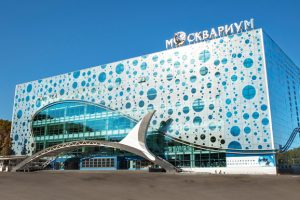
No compromises in design. No equipment was to be visible from the outside, so the climate control units had to be installed in the cellar.
Since 2006, the company has had a subsidiary in Moscow, Frivent Klimatechnika, with branch offices in St. Petersburg, Yekaterinburg and Kazan. At the company’s headquarters in St. Johann, Austria, Josef’s nephew Andreas Friedl now runs the business. He recently completed the company’s most complex project: the Moskvarium. At this dolphinarium in Moscow, visitors can stroll through the underwater world of the oceans on 53,000 square meters of floor space and view dolphins, sea lions, orcas, sharks and the colorful diversity of a coral reef in aquariums filled with 25 million liters of water. On the stands at the show basin, young and old can marvel at the antics of Flipper and his friends. Again and again, full-grown orcas jump out of the water and splash back down to screams from the drenched audience.
Large-scale dehumidification
This is where Andreas Friedl comes into play; his company delivered the ventilation and climate control equipment for the Moskvarium. “When a big animal jumps in the show basin, it sets an immense amount of water free.” The difference in temperature between the water and the air causes the humidity to rise rapidly. The air has to be dehumidified constantly to keep the water from condensing on the walls and damaging the building in the long run.
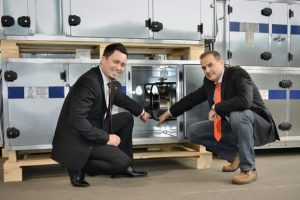
Thorsten Hartl (left) and Frivent managing director Andreas Friedl with an Aquavent dehumidifier equipped with RadiPac.
“Fine-tuning the dehumidification was tricky,” recalls Friedl. “We worked through all eventualities with the planners — and then designed the units for some areas with greater capacity than originally planned.” Now twelve of Frivent’s Aquavent air dehumidifiers with a total dehumidification capacity of nearly two tons of water per hour are at work in the Moskvarium. Moist air flows over a cooling coil in the units and condenses there. The dry air is mixed with outdoor air, brought to room temperature, and fed back into the facility. Maintaining a consistent relation between the air and water temperatures is essential.
When the air temperature decreases, more water evaporates and the dehumidification output increases immediately. “Earlier operators often made the mistake of lowering the air temperature overnight to save energy,” explains Friedl. “But the effect is the opposite, because the dehumidifiers have to work much harder.”
EC fans in eight climate zones
Pleasant conditions are also called for in the other visitor areas. In the Moskvarium’s cellar, 25 Thermobloc central air conditioning units from Frivent circulate up to 750,000 cubic meters of air per hour and bring it to the right temperature. The eight different climate zones in the building were a real challenge, with the great show hall having different conditions from those in the entrance area or the tunnels through the aquariums. “Balancing these different requirements and linking them with the building systems was a tricky job.”
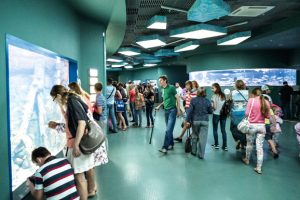
The small aquarium area is just one of eight climate zones kept at a specified temperature and humidity by Frivent equipment.
Air intake and exhaust for the Thermobloc and Aquavent units is controlled by 98 RadiPac EC centrifugal fans from ebm-papst, all of which have a corrosion-resistant coating to protect them from the salt water. They are also running in the 46 standalone air intake units, which were installed where direct connection with the central units was out of the question, for example in the staff lounges. “Frivent uses only EC fans from ebm-papst,” emphasizes Thorsten Hartl, sales manager at ebm-papst in Austria. Saving energy has been a main focus at Frivent since the 1970s, when Josef Friedl reacted to the oil crisis by intensively investigating waste heat recovery.
Russia discovers energy efficiency
When Hartl and Andreas Friedl met for the first time in 2011, EC scarcely played any role at all in East European projects. “In the last five years, Russia has also reconsidered the matter of energy efficiency,” says Friedl. As a result, planning for the Moskvarium emphasized low energy consumption and the best possible waste heat recovery. Over the course of a year, every kilowatt matters with the enormous amounts of air that are conveyed, heated and dehumidified.
„In the last five years, Russia has also reconsidered the matter of energy efficiency“
Andreas Friedl, Managing Director at Frivent
But high efficiency is just one benefit that Frivent takes advantage of. “The RadiPacs can also score with their compact design,” says Thorsten Hartl. “That means a smaller design for the Frivent units — and space is always a major issue in a building.” So is noise. “Of course nothing can be allowed to be transmitted in the huge duct system, since that would amplify the noise,” explains Andreas Friedl. So all units are equipped with noise-suppression modules. Since RadiPac fans have inherently low noise emission, less insulation was required – resulting in considerable cost reductions.
Demanding and trouble-free
Frivent worked on the project from June to September 2014, producing the units one after another in St. Johann, Austria, according to a precise schedule. Delivering them on Russia’s roads, which are not intact everywhere, turned out to be the biggest challenge. The project is especially important to Andreas Friedl. “People didn’t believe we would be able to carry out such a demanding project in such a short time.” But in the end, everything went smoothly. “That was especially important because President Putin was expected to attend the opening, so everyone was very intent on making sure everything worked.”
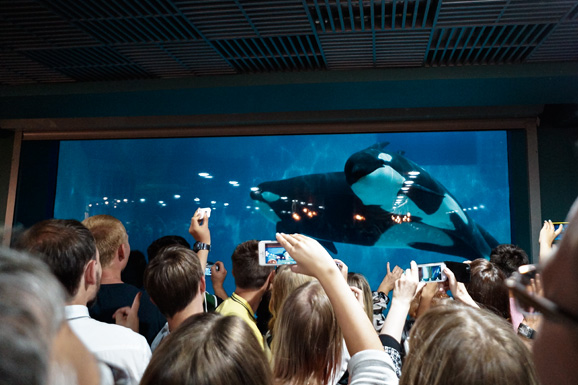
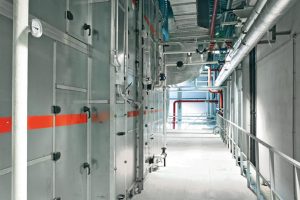
Leave a comment